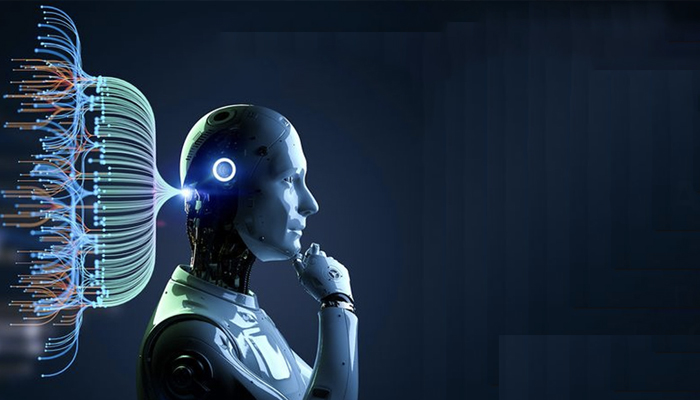Introduction
Generative AI is revolutionising content creation across industries, reshaping how creators, marketers, and businesses approach their work. By leveraging powerful algorithms and machine learning models like GPT, generative AI can produce high-quality, coherent, and contextually relevant content in seconds. Many writers and editors leverage the learning from an ai course in Bangalore and such cities that is specifically designed for writers and content developers. Creative writers can use generative AI for fine-tuning and perfecting their writing. However, while it offers vast opportunities, there are several challenges that come with adopting AI-driven content creation.
Opportunities
Here are some of the opportunities that one can realise by enrolling in a generative AI course that is designed for writers and content creators.
Enhanced Efficiency and Productivity
Generative AI can automate tasks that traditionally required hours of human labour. It can draft blog posts, generate ad copy, write social media content, and even produce video scripts. This allows creators and businesses to focus on strategy and refinement, rather than spending time on initial drafts. With AI, a single creator can scale their output significantly, increasing productivity and saving valuable time.
Personalised Content at Scale
AI tools can analyse user data and create content personalised to individual preferences, leading to highly targeted marketing campaigns. By generating content based on user behaviour, demographic information, and preferences, brands can create meaningful engagement with audiences. Whether it’s a custom email campaign or a tailored product recommendation, generative AI ensures the right content reaches the right person at the right time.
Breaking Language Barriers
Generative AI models are capable of producing content in multiple languages, making global reach easier for companies and creators. AI translation tools like DeepL and Google Translate have improved over time, allowing businesses to localise their content faster and more accurately. This not only fosters better international communication but also helps companies target audiences in regions they might not have been able to before.
Creative Assistance
For content creators, AI can serve as a brainstorming partner. Tools like ChatGPT can help with idea generation, outlining, or even filling in gaps in a piece of content. This collaborative approach gives creators new ways to explore and refine their ideas, opening up creative avenues that may not have been considered.
Challenges
Although generative AI is replete with benefits, it cannot be fully entrusted with advanced tasks like developmental editing or creative writing. While the learning from an AI course in Bangalore tailored for editors and writers can be used to fine-tune content and eliminate the monotony involved in manual content generation, there are several caveats in using generative AI that content creators must be aware of.
Quality Control and Accuracy
While AI models are adept at producing content quickly, maintaining quality and factual accuracy is a significant challenge. AI-generated content can often contain factual errors or exhibit biases learned from the data it was trained on. Human oversight remains crucial to ensure that content is accurate, relevant, and free of harmful or misleading information.
Loss of Human Touch
One of the key concerns with AI-driven content is the potential loss of human touch. AI can produce grammatically sound and coherent content, but it often lacks the emotional depth and nuance that a human writer might infuse into their work. In fields like storytelling, journalism, and creative writing, the lack of authentic human emotion can create a disconnect with the audience.
Ethical Considerations
Generative AI raises several ethical concerns, particularly regarding copyright and intellectual property. As AI models learn from existing content, there is a thin line between generating original material and plagiarising. Content creators and companies must tread carefully to avoid legal disputes over ownership and ensure they are not infringing on others’ intellectual property.
Additionally, generative AI can be misused to create deep fakes or misleading information, contributing to the spread of disinformation online. Tackling these ethical issues requires a collective effort from regulators, developers, and content creators to establish guidelines and responsible usage practices.
Job Displacement Concerns
As AI continues to become more integrated into content creation workflows, there is concern over job displacement in fields like journalism, marketing, and creative industries. While AI is not expected to replace human creativity, it can handle tasks that were previously done by entry-level workers, raising fears about the future of jobs in content-related fields.
Conclusion
Generative AI offers immense potential for transforming the content creation landscape, from increasing efficiency to personalising content at scale. However, it also brings with it significant challenges, especially regarding quality control, ethical considerations, and job displacement.
In using generative AI for content creation, one must not fail to address the concerns about originality, misinformation, and loss of human touch. While it enhances efficiency and creativity, it can generate biassed or inaccurate content if not carefully supervised. Additionally, it has the potential to reduce human roles in writing jobs although this fear is often exaggerated. Ensuring generative AI complements and facilitates rather than replaces human creativity promotes ethical AI-driven content creation.
As the technology continues to evolve, striking a balance between leveraging AI’s capabilities and maintaining human oversight will be crucial in shaping the future of content creation. By addressing these challenges by using the expertise gained by attending a generative AI course, content creators can fully embrace the opportunities that generative AI presents, employing it as a tool to assist with and enhance the creative process of content generation.
For More details visit us:
Name: ExcelR – Data Science, Generative AI, Artificial Intelligence Course in Bangalore
Address: Unit No. T-2 4th Floor, Raja Ikon Sy, No.89/1 Munnekolala, Village, Marathahalli – Sarjapur Outer Ring Rd, above Yes Bank, Marathahalli, Bengaluru, Karnataka 560037
Phone: 087929 28623
Email: enquiry@excelr.com

